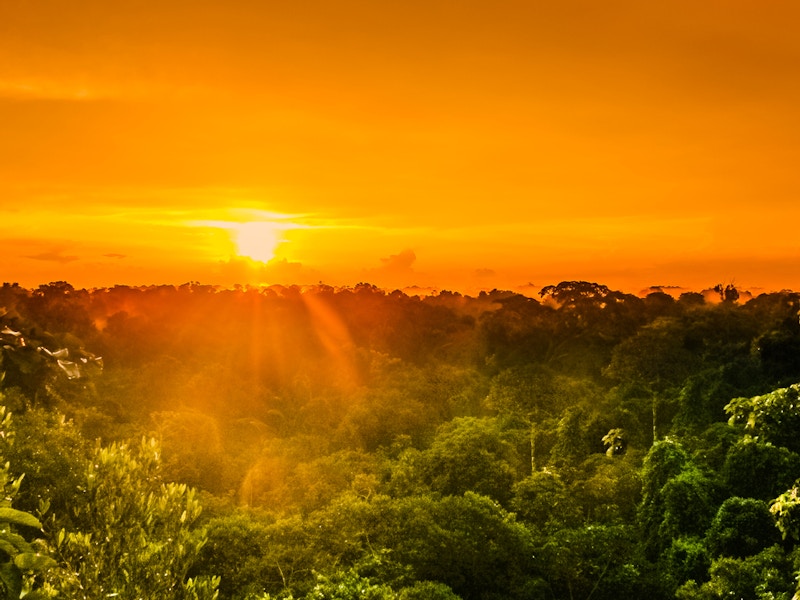
Amazon Summit 2023
The Belém declaration – a recipe for hope for the Amazon rainforest
The eight Amazon countries have agreed on an ambitious plan to protect the Amazon rainforest. "International leaders must seize this moment", urges Rainforest Foundation Norway.
HOPE: The joint declaration by eight Amazon countries offers hope for the protection of the rainforest. Photo: Shutterstock
“This plan has the right ingredients to succeed with improved protection of the Amazon, especially the joint efforts to collaborate in combating illegal activities and improving the land rights of forest peoples. If the rest of the world mobilizes behind this plan with financial support and by making sure the goods we import are deforestation-free, we would have a recipe for hope”, says Anders Haug Larsen, Head of International Advocacy at Rainforest Foundation Norway.
Extensive areas for collaboration
The final declaration sets out a series of areas for collaboration among the Amazon countries, such as combating transnational forest crime and deforestation, protection of indigenous people, sustainable forest economies and an Amazon-specific science panel on climate change.
“We expect that the Pan-Amazon collaboration on combating illegal activities in the Amazon will become especially important, with criminality being allowed to rage freely, particularly in the border areas,” says Haug Larsen.
Illegal activity is the source of most of the deforestation seen in the Amazon as well as exposing forest people to threats and violence. More coordinated efforts on police collaboration, air space surveillance and exchange of information to combat illegal mining are some of the concrete plans between the countries.

ISOLATED: The agreement makes special mention of the importance of the land rights of Indigenous peoples in self-determined isolation. The Peru/Brazil border region has the highest concentration of isolated peoples in the world, living in a rainforest area larger than the UK. Photo: FUNAI
Emphasis on securing Indigenous rights
“We’re also pleased to see the emphasis on the importance of securing Indigenous peoples' land rights, including a special mention of Indigenous peoples in self-determined isolation. They are under constant threats and land rights will not only give them better protection, it will also prevent deforestation and protect the rich biodiversity within these territories,” says Haug Larsen. Two areas overlapping the Brazil-Peru border form the world’s most extensive continuous territories of indigenous peoples that are yet to establish contact with the outside world. They measure an area larger than the UK, but they are not fully recognised as protected areas.
The declaration is also promoting sustainable socio-economic models that ensure standing forests and the sustainable use of biodiversity resources in the Amazon. “We won’t be able to save the Amazon rainforest without the people who live there. There is a need for a diversity of forest economy solutions to counter the trend of agricultural commodities as the dominant economic model for the pan Amazon,” says Haug Larsen.
“Securing the Amazon is the single largest climate mitigation measure imaginable over the next few years. After a summer of record-breaking temperatures, forest fires and extreme weather we need to look for quick climate wins, and protecting the Amazon is the best place to put your money”, says Haug Larsen.
No agreement on joint zero deforestation targets
The final declaration however fell short of agreeing on a joint zero deforestation target, despite all countries previously having committed to “halt and reverse forest loss and land degradation by 2030”1. The declaration also avoided direct mention of limiting oil and gas exploration in the Amazon.
“Inclusion of a joint zero deforestation target would have been an important guiding star for the agreement. The agreement would also be strengthened by highlighting bans or limits for oil and gas exploration and other direct drivers of deforestation. Still, we believe that proper implementation of the agreement would regardless be a giant leap in the right direction,” says Haug Larsen.

Anders Haug Larsen
Advocacy Director
(+47) 932 17 626
andershl@rainforest.no